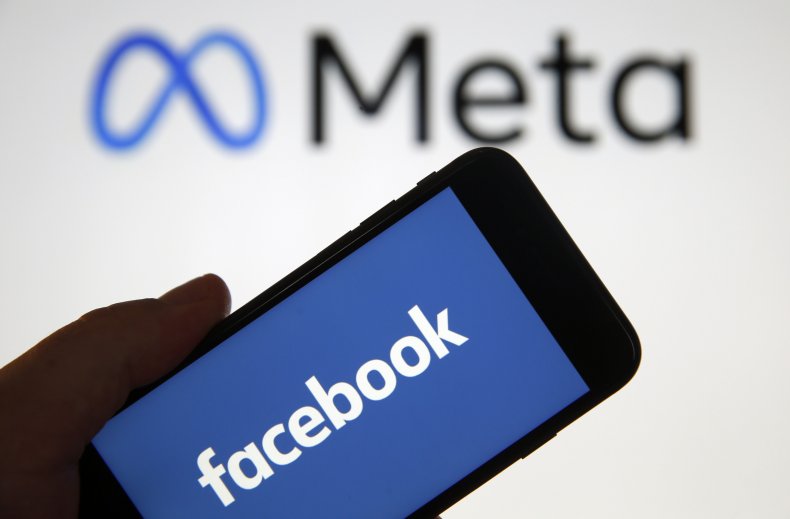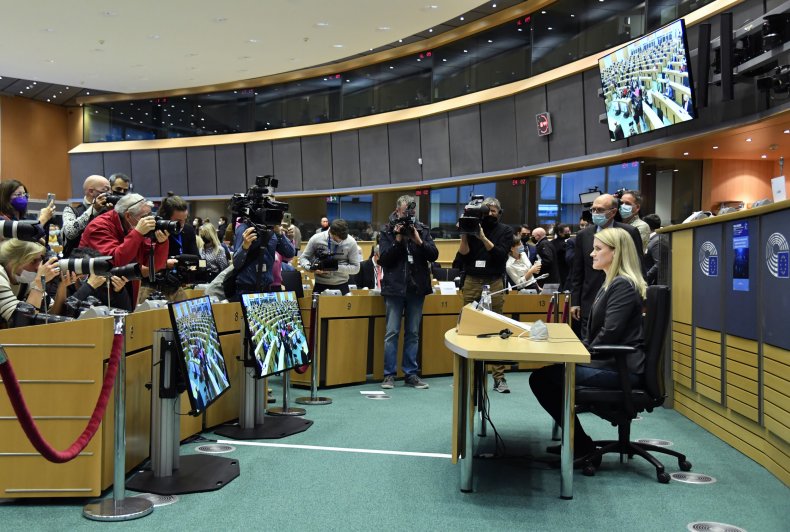U.S. Lags in Policing Big Tech Due to Companies Being Homegrown, Expert Says
While Europe makes strides in its bid to rein in the power of big tech companies like Facebook and Twitter, efforts in the U.S. and other parts of the world have not been as quick-paced, the Associated Press reported. Jan Penfrat, senior policy adviser at digital rights group EDRi, said that the U.S. may be slower moving because of many large companies being headquartered in the U.S., whether in Silicon Valley or elsewhere.
Facebook and other companies have recently come under fire for their platforms' ability to host and spread harmful content and misinformation, spurring the European Union to work on a new collection of digital rules for the bloc. Some said the proximity of those companies to the U.S. may be muddying their perception of the risks they pose, the AP reported.
Penfrat said that the U.S. could also be "lagging behind" because of "immense pressure from the homegrown companies." She said that those companies are likely arguing to officials in Washington that tighter restrictions would give them a disadvantage as they compete with Chinese tech companies and others.
For more reporting from the Associated Press, see below:

Drawing up a new package of digital rules for the 27-nation European Union is getting a boost from Facebook whistleblower Frances Haugen, who is answering questions Monday in Brussels from a European Parliament committee. It's the latest sign of interest in her revelations that Facebook prioritized profits over safety after the former data scientist testified last month to the U.S. Senate and released internal documents.
If the EU rules are done right, "you can create a game-changer for the world, you can force platforms to price in societal risk to their business operations so the decisions about what products to build and how to build them is not purely based on profit maximization," Haugen told lawmakers. "And you can show the world how transparency, oversight and enforcement should work."
She's been on a European tour, meeting lawmakers and regulators in the EU and United Kingdom who are seeking her input as they work on stricter rules for online companies. A wider global movement to crack down on digital giants is taking cues from Europe and gaining momentum in the U.S. and Australia.
Europe has been a trailblazer in applying more scrutiny for big tech companies, most famously by slapping Google with multibillion-dollar fines in three antitrust cases. Now, the European Union is working on a sweeping update of its digital rulebook, including requiring companies to be more transparent with users on how algorithms make recommendations for what shows up on their feeds and forcing them to swiftly take down illegal content such as hate speech.
The rules are aimed at preventing bad behavior, rather than punishing past actions, as the EU has largely done so far.
France and Germany also are bringing in their own national legislation requiring social media platforms to take down illegal content quicker, though these rules would be superseded by the EU ones, which are expected to take effect no earlier than 2023.
Meanwhile, the U.S. has only recently started cracking down on big tech companies, with regulators fining Facebook and YouTube over allegations of privacy violations and the government suing over their huge share of the market in the last couple of years. American lawmakers have proposed measures to protect kids online and get at the algorithms used to determine what shows up on feeds, but they all face a long road to passing.
While Haugen's testimony and the documents she has provided have shed light on how Facebook's systems work and spurred efforts in the U.S., European lawmakers may not be that surprised by what she has to say.
"The fact that Facebook is disseminating polarizing content more than other kinds of content is something that people like me have been saying for years," said Alexandra Geese, a European Union lawmaker with the Green party. "But we didn't have any evidence to prove it."
European lawmakers have been interested in digging in to algorithms, as they work on requiring platforms to be more transparent with users on how artificial intelligence makes recommendations on what content people see.
"It's rather about looking under the hood and regulating the kind of mechanisms that a company, a platform established to disseminate content or to direct people down rabbit holes into extremist groups," Geese said. What Haugen is doing is "shifting the focus, and I think this is something that many other people before didn't see."
In the U.K., which left the European Union last year, the government also is working on a raft of digital regulations, including an online safety bill that calls for a regulator to ensure tech companies comply with rules requiring them to remove dangerous or harmful content or face big financial penalties.
For the European Union, there's still a lot of wrangling over the final details of the rules, two packages known as the Digital Services Act and the Digital Markets Act, which the EU Commission hopes to get approved next year.
Free speech campaigners and digital rights activists worry that EU rules requiring platforms to swiftly remove harmful content will lead to overzealous deletion of material that isn't illegal. In a bid to balance free speech requirements, users will be given the chance to complain about what content is removed.
In London, there's been a similar debate over how to define harmful but illegal content.
Both the EU and U.K. rules call for hefty fines worth up to 10 percent of a company's annual global turnover, which for the biggest tech companies could amount to billions of dollars in revenue.


